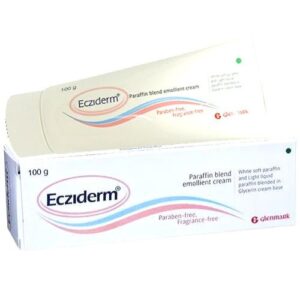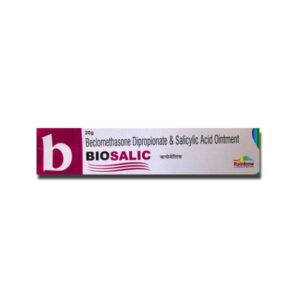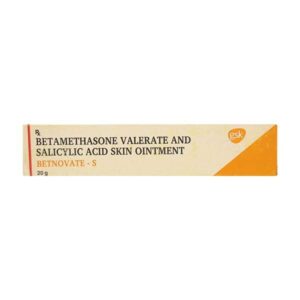BETAMETHASONE + SALICYLIC ACID
Betamethasone: Betamethasone is a corticosteroid medication commonly used in the treatment of various inflammatory and allergic conditions. It is available in several forms, including tablets, creams, ointments, and injections.
The mechanism of action of betamethasone involves the inhibition of inflammation by suppressing the immune response. It works by binding to specific receptors within cells and influencing the production of certain proteins that regulate inflammation and immune system activity. This leads to a reduction in redness, swelling, itching, and overall inflammation.
The specific dose of betamethasone depends on the form and severity of the condition being treated. For oral tablets, the usual starting dose can range from 0.6 to 7.2 mg per day, divided into multiple doses. The dose may be gradually tapered down after the initial improvement. For topical creams or ointments, a thin layer should be applied to the affected area 1-3 times daily, as directed by a healthcare professional.
As with any medication, betamethasone can cause side effects. Some common side effects include increased appetite, weight gain, fluid retention, mood swings, difficulty sleeping, increased blood pressure, and gastrointestinal disturbances. Prolonged use or high doses may also lead to more serious side effects such as osteoporosis, muscle weakness, increased risk of infections, and adrenal suppression. Long-term use of topical betamethasone can also cause skin thinning, easy bruising, and stretch marks.
It is important to follow the prescribed dose and duration of treatment to minimize the risk of side effects. Before using betamethasone, it is important to inform your healthcare provider about any pre-existing medical conditions, ongoing medications, or allergies to ensure its safe usage.
Salicylic Acid: Drug: Salicylic Acid
Use: Salicylic acid is a medication used to treat various skin conditions, including acne, warts, and other dermatological conditions. It is available over-the-counter in the form of creams, gels, lotions, and ointments, as well as in prescription strength.
Mechanism of Action: Salicylic acid is a keratolytic agent, which means it works by softening and shedding the top layer of the skin. It helps to unclog pores, exfoliate dead skin cells, and break down comedones (whiteheads/blackheads). Salicylic acid also has anti-inflammatory properties that help reduce redness and inflammation associated with acne and other skin conditions.
Dose: The dosage of salicylic acid depends on the form of the medication and the condition being treated. For acne, the typical concentration of salicylic acid in over-the-counter products ranges from 0.5% to 2%. For prescription strength formulations, the concentration may be higher. The specific instructions for use will be provided by the healthcare professional or mentioned on the product label. It is important to follow the recommended dose and duration of treatment.
Side Effects: Salicylic acid is generally considered safe when used as directed. However, some people may experience side effects such as skin irritation, dryness, redness, and peeling. These side effects are usually mild and temporary. In rare cases, allergic reactions may occur, characterized by itching, rash, swelling, or difficulty breathing. If any severe or persistent side effects occur, it is advisable to discontinue use and consult a healthcare professional.
Caution: Salicylic acid should not be used on broken or irritated skin, and it should be avoided in individuals with known allergies to salicylates. Additionally, it is important to avoid contact with eyes, mouth, and other mucous membranes. If accidental contact occurs, rinse thoroughly with water.
Drug Interactions: Salicylic acid can enhance the absorption of other topically applied medications, and using multiple medications containing salicylic acid simultaneously can increase the risk of side effects. It is advisable to consult a healthcare professional or pharmacist before using other topical products in conjunction with salicylic acid.
Overall, salicylic acid is an effective topical treatment for various skin conditions, primarily acne. However, it is essential to use the medication as directed and consult a healthcare professional if any concerns or questions arise.



